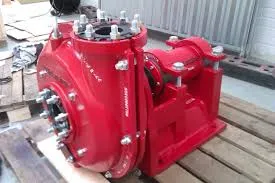English
- Afrikaans
- Albanian
- Amharic
- Arabic
- Armenian
- Azerbaijani
- Basque
- Belarusian
- Bengali
- Bosnian
- Bulgarian
- Catalan
- Cebuano
- Corsican
- Croatian
- Czech
- Danish
- Dutch
- English
- Esperanto
- Estonian
- Finnish
- French
- Frisian
- Galician
- Georgian
- German
- Greek
- Gujarati
- Haitian Creole
- hausa
- hawaiian
- Hebrew
- Hindi
- Miao
- Hungarian
- Icelandic
- igbo
- Indonesian
- irish
- Italian
- Japanese
- Javanese
- Kannada
- kazakh
- Khmer
- Rwandese
- Korean
- Kurdish
- Kyrgyz
- Lao
- Latin
- Latvian
- Lithuanian
- Luxembourgish
- Macedonian
- Malgashi
- Malay
- Malayalam
- Maltese
- Maori
- Marathi
- Mongolian
- Myanmar
- Nepali
- Norwegian
- Norwegian
- Occitan
- Pashto
- Persian
- Polish
- Portuguese
- Punjabi
- Romanian
- Russian
- Samoan
- Scottish Gaelic
- Serbian
- Sesotho
- Shona
- Sindhi
- Sinhala
- Slovak
- Slovenian
- Somali
- Spanish
- Sundanese
- Swahili
- Swedish
- Tagalog
- Tajik
- Tamil
- Tatar
- Telugu
- Thai
- Turkish
- Turkmen
- Ukrainian
- Urdu
- Uighur
- Uzbek
- Vietnamese
- Welsh
- Bantu
- Yiddish
- Yoruba
- Zulu
Telephone: +86 13120555503
Email: frank@cypump.com
Nov . 03, 2024 04:48 Back to list
'understanding the functionality and applications of impeller ...'
Understanding the Functionality and Applications of Impellers
Impellers play a critical role in a variety of mechanical systems, particularly in fluid dynamics and engineering applications. They are devices designed to impart energy to a fluid, enhancing its flow or pressure in processes such as pumping, mixing, and aerating. Understanding the functionality and applications of impellers is essential for engineers and designers seeking to optimize performance in various industries, including manufacturing, water treatment, and chemical processing.
Functionality of Impellers
At their core, impellers are designed to convert rotational energy into kinetic energy of the fluid. They typically consist of blades or vanes that rotate around an axis, driving the fluid through the device. The shape, size, and arrangement of these blades influence the efficiency of the impeller. Common types of impellers include radial, axial, and mixed-flow, each serving unique purposes based on the desired flow pattern and pressure requirements.
In radial flow impellers, the fluid moves outward from the center to the perimeter, making them suitable for high-pressure applications. Axial flow impellers, on the other hand, direct fluid parallel to the impeller shaft, often seen in applications requiring high flow rates and low pressure. Mixed-flow impellers combine characteristics of both, providing versatility in performance.
Applications of Impellers
'understanding the functionality and applications of impeller ...'

The applications of impellers are vast and varied, extending across numerous sectors. In the water and wastewater treatment industry, impellers are fundamental components of pumps and mixers. They help circulate and aerate water, enhancing the treatment process by ensuring proper mixing of chemicals and expediting the breakdown of contaminants.
In the chemical processing industry, impellers facilitate mixing and agitating processes, ensuring uniform distribution of components. This is crucial in applications ranging from pharmaceuticals to cosmetics, where the consistency and efficacy of products depend on the thorough mixing of ingredients.
Moreover, impellers are integral in HVAC systems, where they support air circulation and ventilation. They enhance comfort by ensuring consistent airflow, which is essential for maintaining optimal indoor temperature and air quality.
In the food and beverage industry, impellers are used in various mixing and pumping applications, including the processing of liquids like juices, sauces, and dairy products. Their design ensures that sensitive materials are handled gently, preserving quality while facilitating efficient production.
Conclusion
In summary, impellers are essential components that significantly influence the efficiency and effectiveness of fluid dynamics systems across numerous industries. By understanding their functionality and diverse applications, engineers and designers can select the appropriate type of impeller, optimizing operations for enhanced performance and sustainability. As technology advances, the development of new impeller designs and materials will undoubtedly expand their applications, further emphasizing their importance in modern engineering practices.
-
ISG Series Vertical Pipeline Pump - Chi Yuan Pumps Co., LTD.|High Efficiency, Energy Conservation, Low Noise
NewsJul.29,2025
-
ISG Series Vertical Pipeline Pump-Chi Yuan Pumps Co., LTD.|High Efficiency&Energy-Saving
NewsJul.29,2025
-
ISG Series Vertical Pipeline Pump - Chi Yuan Pumps Co., LTD. | High Efficiency, Energy-Saving
NewsJul.29,2025
-
ISG Series Pipeline Pump - Chi Yuan Pumps | High Efficiency, Low Noise
NewsJul.29,2025
-
High-Efficiency Vertical Slurry Pumps for Mining & Industry Solutions
NewsJul.29,2025
-
High-Efficiency Pipeline Pump Solutions for Every Pipeline Pump Station
NewsJul.29,2025










